In New York opened the 71st session of the UN General Assembly

On Tuesday, September 13, officially opened the 71st session of the UN General Assembly. The new Chairman of the 71st session of the elected diplomat from Fiji Peter Thomson.
According to the UN news Center, the annual General debate will begin on September 20 and will last until September 26.
Earlier today, the President of the 70th session of the UN General Assembly Mogens Lykketoft announced the closing ceremony of the 70th session.
Mogens Lykketoft recalled that the delegates of the 70th session, has made progress as regards sustainable development and the fight against climate change. Managed to innovate in the election procedure of the Secretary-General, who unanimously supported by member States of the UN.
The new Chairman of the 71st session of the elected diplomat from Fiji Peter Thomson. In the first days of the new session will be addressed mainly procedural issues, including those associated with the distribution of agenda items at the six main committees of the Assembly.
September 20 will begin its General debate. According to tradition, the first in the rostrum of the General Assembly will be the leaders of Brazil and the United States. Before the General debate, UN Secretary-General will submit to the member States of the UN its annual report on the work of the Organization.
According to the preliminary list of speakers, in the first half of the first day of the General debate after President Obama will be the presidents of Chad and of France, as well as the heads of state of Guyana, Qatar, Argentina, Slovakia, Malawi, Jordan, Switzerland and Peru.
On the same day of the scheduled speech of the Prime Minister of Great Britain. First half of the day on September 21 the delegates at the 71st session of the General Assembly will address the President of Ukraine Petro Poroshenko.
On the eve of the General debate on 19 September will host a Summit on refugees and migrants.
The UN General Assembly is the main deliberative organ of the UN. It includes representatives of all States members of the Organization, each of which has one vote. Decisions on important issues such as peace and security or the admission of new members, require a two-thirds majority of the votes. Decisions on other questions are accepted by simple majority.











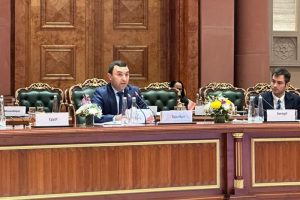 Tajikistan Promotes Digital Transformation Agenda at AI Impact Summit
Tajikistan Promotes Digital Transformation Agenda at AI Impact Summit Tajikistan Expands AI Cooperation with Google DeepMind
Tajikistan Expands AI Cooperation with Google DeepMind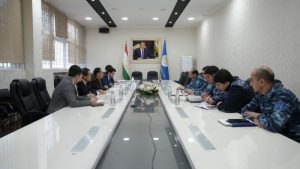 Tajik Customs, Japanese Firm Sign Deal on Cargo Scanning Upgrade Project
Tajik Customs, Japanese Firm Sign Deal on Cargo Scanning Upgrade Project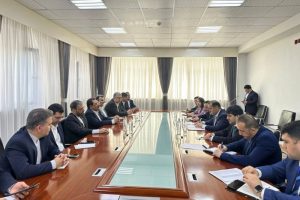 Tajikistan, Iran Discuss Boosting Direct Investment Cooperation
Tajikistan, Iran Discuss Boosting Direct Investment Cooperation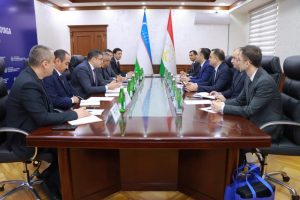 Tajik and Uzbek Anti-Corruption Agencies Discuss Expanding Cooperation
Tajik and Uzbek Anti-Corruption Agencies Discuss Expanding Cooperation Starlink Satellite Internet Launches in Tajikistan
Starlink Satellite Internet Launches in Tajikistan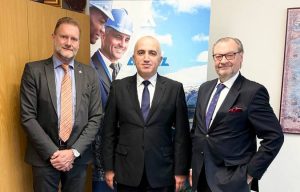 Austrian Company Andritz Hydro Seeks to Expand Cooperation with Tajikistan
Austrian Company Andritz Hydro Seeks to Expand Cooperation with Tajikistan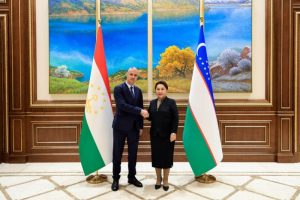 Ambassador of Tajikistan Meets with Chairperson of the Senate of Uzbekistan
Ambassador of Tajikistan Meets with Chairperson of the Senate of Uzbekistan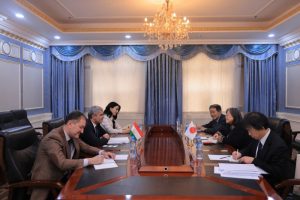 Tajikistan and Japan Discuss Cooperation within Regional and International Organizations
Tajikistan and Japan Discuss Cooperation within Regional and International Organizations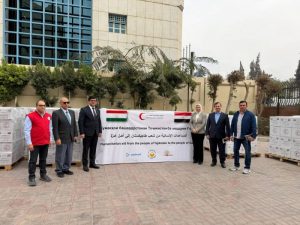 Tajikistan’s Humanitarian Aid to the People of Gaza
Tajikistan’s Humanitarian Aid to the People of Gaza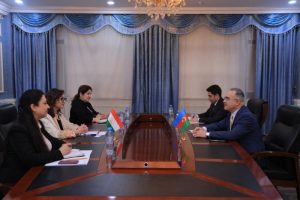 Bilateral Cooperation Between Tajikistan and Azerbaijan Discussed in Dushanbe
Bilateral Cooperation Between Tajikistan and Azerbaijan Discussed in Dushanbe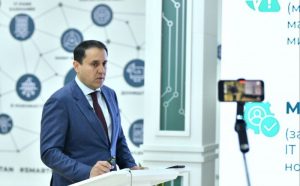 Tajikistan Establishes Data Protection Center to Strengthen Cybersecurity
Tajikistan Establishes Data Protection Center to Strengthen Cybersecurity














